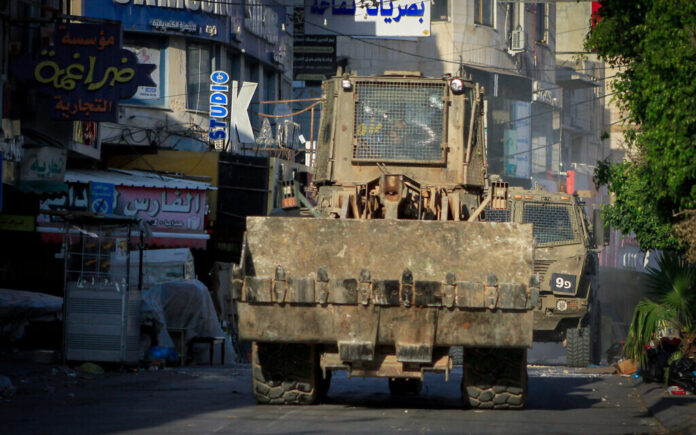In a span of just over a week, the Israel Defense Forces (IDF) have mourned the loss of two soldiers to powerful roadside bombs in separate incidents within the West Bank.
The escalating threat posed by improvised explosive devices (IEDs) has thrust the region into heightened tension, prompting urgent measures from military authorities.
Captain Alon Sacgiu, aged 22 and serving as a sniper team commander in the Kfir Brigade’s Haruv reconnaissance unit, met his untimely demise in an explosion on June 27 at the Jenin refugee camp.
Just days later, Sergeant First Class (res.) Yehuda Geto, also 22 years old and a combat driver, fell victim to another blast on July 1 in the Nur Shams refugee camp.
These incidents underscore a growing concern within the IDF’s Central Command regarding the strategic deployment of IEDs in key operational areas.
Sources within the IDF highlight parallels to past challenges faced in South Lebanon during the 1990s, particularly with Hezbollah’s tactical use of IEDs to target Israeli military movements along vulnerable routes.
However, the current scenario in the West Bank presents distinct challenges, as the explosives are increasingly concealed within Palestinian refugee camps, towns, and neighborhoods.
“These local initiatives, often involving members of various Palestinian factions, aim to establish zones where IDF operations are severely restricted,” remarked military analysts familiar with the situation.
The placement of IEDs in densely populated civilian areas not only poses a direct threat to Israeli forces but also complicates efforts to maintain security and stability in the region.
The IDF’s response has been resolute, focusing on enhancing intelligence-gathering capabilities and strategic countermeasures aimed at mitigating the IED threat.
Military operations have intensified in areas identified as high-risk, with an emphasis on preemptive measures to dismantle bomb-making networks and disrupt hostile activities.
Colonel Avi Harel, a spokesperson for the IDF, emphasized the imperative of preserving freedom of movement while ensuring the safety of military personnel and civilians alike.
“We are committed to confronting this evolving threat with all necessary means, while minimizing the impact on innocent residents caught in the crossfire,” stated Colonel Harel.
The situation remains fluid as IDF forces continue to adapt their tactics in response to evolving threats.
Efforts are underway to engage local communities in collaborative security initiatives aimed at preventing further tragedies and fostering a stable environment conducive to peace.
As tensions mount and the specter of violence persists, the IDF remains vigilant, navigating the intricate landscape of the West Bank with a steadfast determination to safeguard national security amidst complex geopolitical realities.
This article was created using automation technology and was thoroughly edited and fact-checked by one of our editorial staff members

